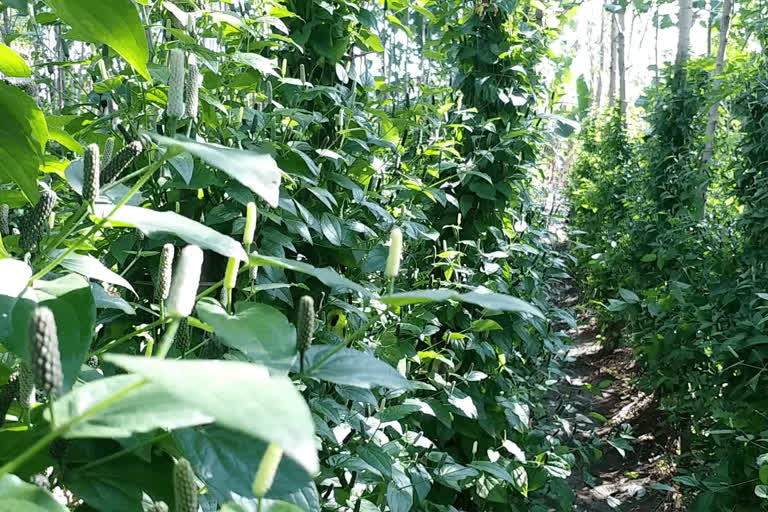Amravati: Panpimpri, an effective Ayurvedic medicine, for diseases such as fever, dry cough, heartburn, and acidity, is widely grown in Achalpur, Anjangaon Surji taluka at the foot of Melghat in Maharashtra and is being sought-after for medicinal value. Panpimpri is cultivated in a specific way, and the crop is ready in a year.
Panpimpri farming is mainly done by the farmers of the Bari community. After plowing the farmland with tractors, the farmland is irrigated after planting seeds to enhance germination. The Panpimpri crop is very delicate and heta flower trees are planted in the field to make the Panpimpri vine grow in a straight line.
A special type of strong grass called tatu is brought from the Melghat forests to tie the Panpimpri vines to the heta trees for support. Panpimpri vine needs to be watered a lot in summer. Excess water is dangerous for Panpimpri during monsoon and the farmland needs to have a proper drainage system to drain out excess water.
Panpimpri farming starts in March and April. In September and October, the vine of Panpimpri bears green-colored Pimpri. In November and December, the fruit is ready and is dried after harvest. Ramesh Yeul, a Panpimpri producer from Anjangaon Surjee told 'ETV Bharat' that the crop "sells at a rate ranging anywhere from Rs 400 to Rs 1200 due to its medicinal value."
Panpimpri is believed to treat diseases such as fever, dry cough, heartburn, and acidity. It is believed to be bought by Baba Ramdev's ayurvedic company Patanjali. Panpimpri is produced in large quantities in the areas of Anjangaon Surji, Achalpur, and Shirajgaon in the Amravati district. Panpimpri is considered sacred in Bari society. Farmers never wash their hands after eating them in the field. Besides, menstruating women are not allowed to enter Panpimpri farm.



